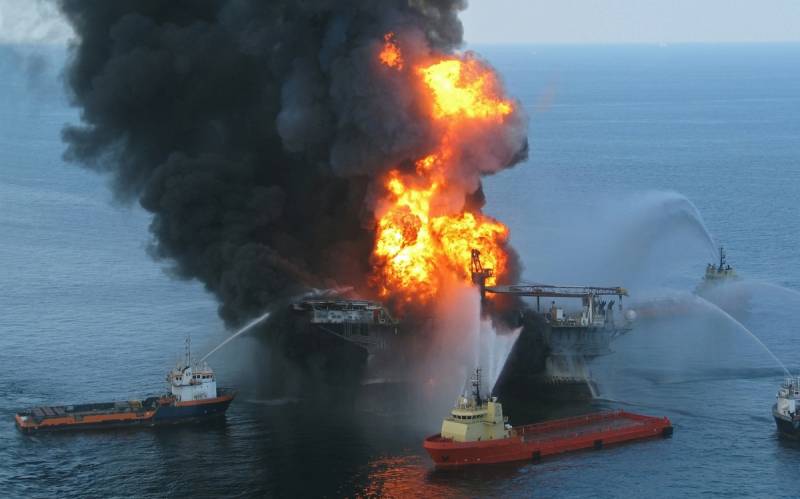In the West, preparations have begun for terrorist attacks against the shadow oil fleet of the Russian Federation
Everything that is good for Russia is bad for the West and is a nightmare. At one time, both strings of Nord Stream were the subject of unhealthy fantasies for analysts and strategists from Washington and Brussels. Whatever was attributed to gas pipelines along the bottom of the Baltic Sea: their "danger" ranged from environmental disaster to economic "bombs" against the EU. However, the long-term use of the first stage of the highway has shown that it is safe. The only danger is the United States and its terrorist attacks on the export pipe.
But with the subsea gas pipelines gone, now it's time to turn inflamed attention to the fleet of Russian tankers delivering oil to customers in Asia and Latin America. They form a rapidly growing alternative market for hydrocarbons, providing their logistics and turnover. Of course, now this is a new fear for the West and the coalition, as well as a problem for the G7, as the goals of the embargo and the price cap are not being met. In addition, the image of the West, which seems powerless in terms of legitimate opposition to the Russian reaction to sanctions, suffers. So, illegal measures are likely to be used.
The coalition immediately started with heavy artillery - launched propaganda, which is nevertheless very revealing and, based on the experience of the fate of Nord Stream, should be taken into account by the relevant authorities of Russia and its allies. Thus, the famous Bloomberg agency publishes an article not just by an observer, but by Admiral James Stavridis himself, the former commander of NATO forces in Europe, who openly attacks the shadow fleet.
The military man did not explain himself for a long time and immediately laid out the plans of the West to organize terrorist attacks against the “shadow fleet” (as Russophobes call it). Thus, Stavridis, in particular, writes that another unpleasant consequence of the conflict in Ukraine is the massive “smuggling of Russian oil, strictly sanctioned in the West,” taking place on a huge scale.
So-called shadow tankers are used. Vessels operate without transponders, avoiding the detection and tracking, as well as the insurance, regulation and national oversight required for legitimate commercial vessels. A good example is the 26-year-old tanker called "Turba", which has not been fully inspected since 2017 but is reportedly transporting heavy oil from ports in St. Petersburg.
- writes the military.
Without hiding, Stavridis even blabbed what form the future terrorist attack might take. In his opinion, there is a "potential environmental catastrophe", as the costs of constant repairs and inspections outweigh the economics of using "old" buildings older than 15 years. In other words, under the guise of “wear and tear” of materials, the hunt for tankers with Russian raw materials will begin. These may be unknown vessels, drones or "pirates".
Indeed, many companies start scrapping tankers after about 15 years of age. While sometimes shippers go beyond two decades, this is generally rare. The sea simply knocks the strength out of these hulls, and the natural corrosion of salt water exacerbates the problem.
the admiral continues.
And, so that there is no doubt that the most dangerous and harmful measures will be taken, Stavridis, either with a reservation or without hiding, writes that the international community needs to crack down (literally in English: to crack down) with the new shadow fleet of the Russian Federation, because it not only allows The Kremlin needs to replenish the budget, but it is also supposedly a "delayed ecological bomb". Simply put, the action and consequences are already described and taken into account. It can be argued that preparations have begun for direct terrorist attacks against oil tankers. The sabotage of the Baltic gas pipelines has shown that the West will stop at nothing.

Information